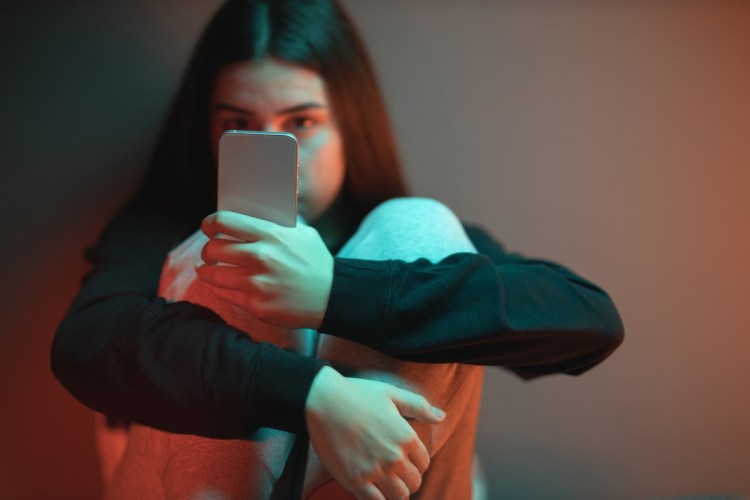As anxiety rates among young people soar, South Australia is taking action to curb their social media use. We find out why and get expert advice on safeguarding children online.
The state government is looking at banning children under the age of 14 from having social media accounts and also requiring parental consent for children aged 14 and 15. It might sound harsh, but there’s plenty to suggest it’s the right thing to do.
Right now, one of the nation’s pre-eminent legal minds, Robert French, is examining the legal, regulatory and technological pathways for the state government to impose the nation-leading ban and legal changes.
What’s causing the concern?
Nearly 14 per cent of Australian children aged 4-11 years have experienced a mental disorder, with anxiety being one of the most prevalent. Research increasingly shows the detrimental impact social media can have on young minds, contributing to this growing concern.
Platforms like TikTok, Snapchat, Reddit, Discord, Facebook, and Instagram have become deeply ingrained in the lives of most Australians.
However, their ubiquity has made it increasingly difficult to shield children from the harmful aspects of the online world, including cyberbullying, online harassment, hate speech, sextortion, disinformation, pornography and the constant pressure to compare themselves to others’ seemingly perfect lives.
There are also issues around social media’s addictiveness, which can lead to mindless scrolling and procrastination.
Social media use is the #1 issue among parents and carers
Research by mental health service ReachOut found that 59 per cent of Australian parents and caregivers were concerned about their child’s use of social media.
And more than half of them said social media had a significant impact on their child’s wellbeing.
Can’t stop, won’t stop
ReachOut also reported that 57 per cent of young people turned to digital media and social platforms to de-stress. We know young people also talk about social media causing feelings of anxiety and depression – but keep using it because their friends do.
Raising minimum age limits will enable teens to be more mature, with a better sense of self and more media savvy before they encounter social media. For parents and caregivers who want to help their children to curb their behaviour and reduce their social media usage, the introduction of new laws may offer the support they’ve been looking for.
It’s not just South Australia that’s taking a stand
Spain has laws banning under 14s from having a social media account. In the US – the home of the biggest social media companies – individual states are also introducing their own laws.
From next year, Florida will ban under 14s from social media and require 14- and 15-year-olds to have their parent’s permission. In Texas, under 18s will require parental consent to open an account.

What parents and carers can do now to help
Almost two-thirds of Australian children 8 to 17 have their own mobile phone. Parenting SA Manager Sophie Allouache says while there are guidelines for children’s screentime (including no or limited screentime for babies and toddlers whose brains are still developing), we need to also think about how children are using their phones, computers or tablets.
“Children do most of their learning on them and use them to connect with friends and family,” Sophie says. “If an issue has come up online or in social media, we actually say it’s better not to take away their device and to talk with them instead.”
She says banning any device can be perceived as a breach of trust. It may be less likely the child will ask for help with problems in the future. It will also make it harder to access online support, like Kids Helpline.
Sophie suggests coming up with a digital plan as a family for screentime, limiting its hours and uses.
“There are many good aspects about technology, but helping our children and young people develop positive and sustainable digital habits is one of the best things we can do as parents.
“Another is having ongoing and frequent conversations about what the children are doing online and being interested and involved.”
She also recommends Parenting SA’s cyber safety Parent Easy Guide, which has information on staying safe on social media and online, plus attending a free cyber safety workshop run by the Department of Human Services across SA.
Five top tips for cyber safety
Encourage your child or young person to:
- Set privacy settings so their profile is only seen by people they intend, and check settings often.
- Decide whether to use a nickname, avatar or an image of something they like instead of their photo.
- Realise most messages and images they share can be accessed, saved, manipulated and distributed by others. Personal information may be misused or their identity stolen.
- Understand the risks of ‘friending’ people, accepting ‘followers’ or ‘chatting’ with people they don’t know in real life. They may not be who they say they are and intend harm, AKA ‘catfishing’.
- Tell you or another trusted adult if anything concerns them. Assure them they won’t be punished or have devices taken away. Remind them to collect evidence before blocking or deleting offending material.
Find more important tips and guidance on the Parenting SA website.
What are we doing in SA to get a new law in place?
The South Australian Government has appointed Robert French AC, a former Chief Justice of the High Court, to look at what can be done from legal, regulatory and technological perspectives, and how a social media ban could be introduced.
CEO of The Carly Ryan Foundation, Sonya Ryan, supports the move to ban social media for young people. “Social media presents a ‘profound risk of harm’ for kids,” Sonya says.
Named in memory of South Australian Carly Ryan, who was murdered aged 15 by an online predator posing as a teenage boy, the foundation educates students and parents about online safety and healthy relationships – as well as advocating for laws to protect children and young people online.
“In my opinion the only way forward is to create appropriate legislation to protect our children from these harms and regulate big tech companies to include mandatory age verification across all platforms,” Sonya says.
Are you struggling or do you know someone who is? Make sure to reach out to one of the many mental health services available:
Beyond Blue: 1300 22 46 36
LifeLine: 13 11 14
Kids Helpline: 1800 55 1800
SA mental health services register

















